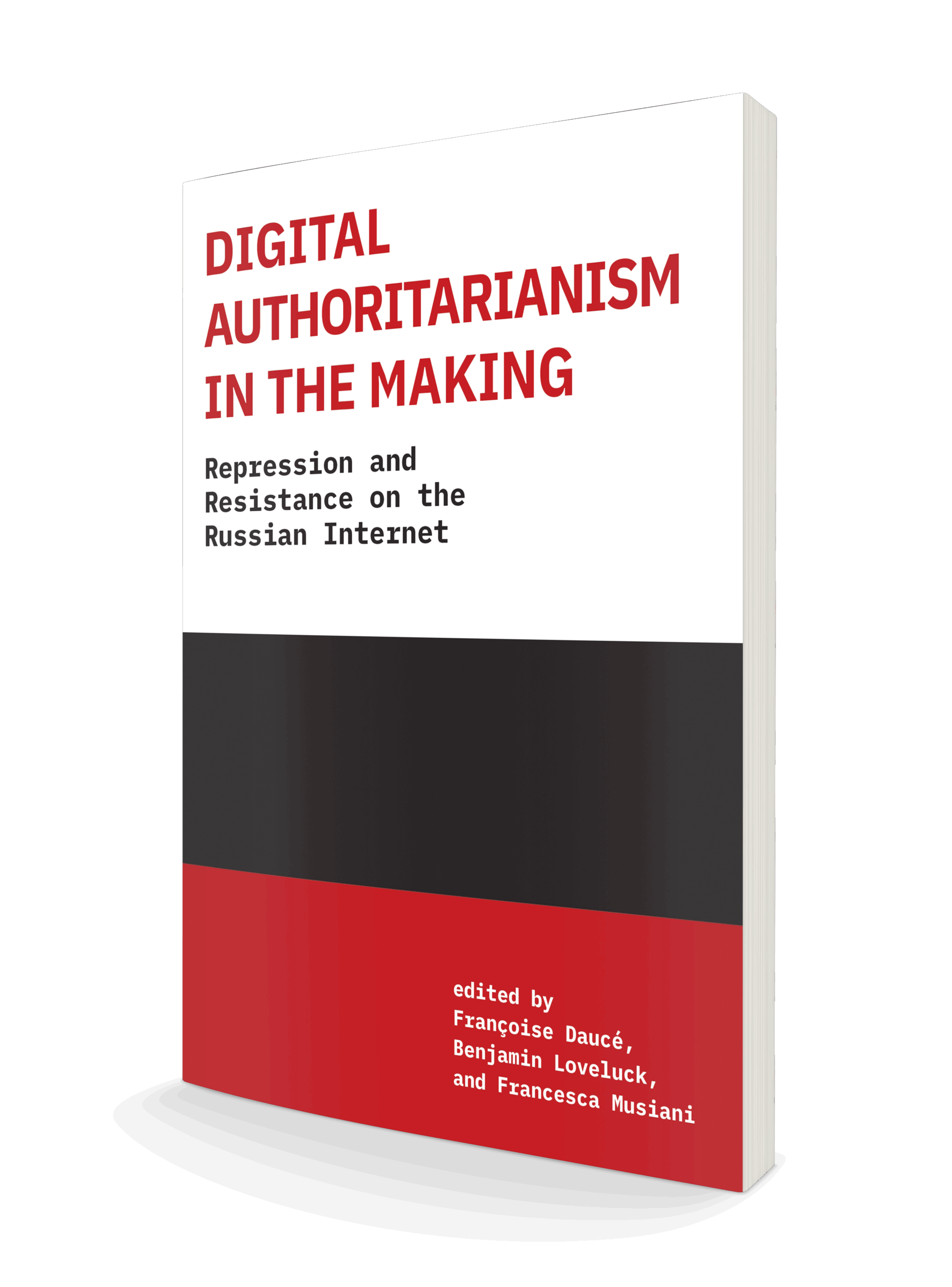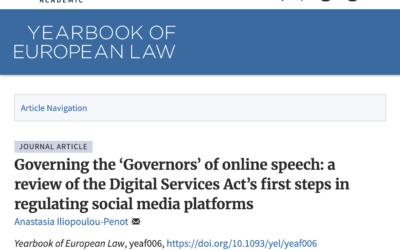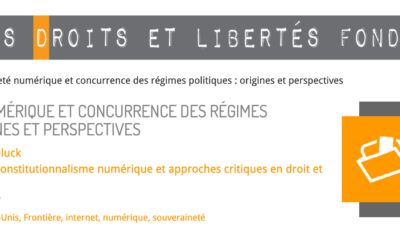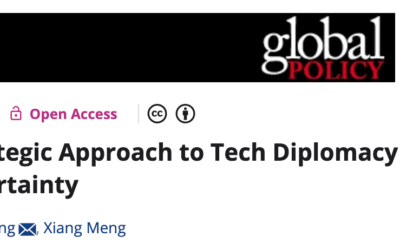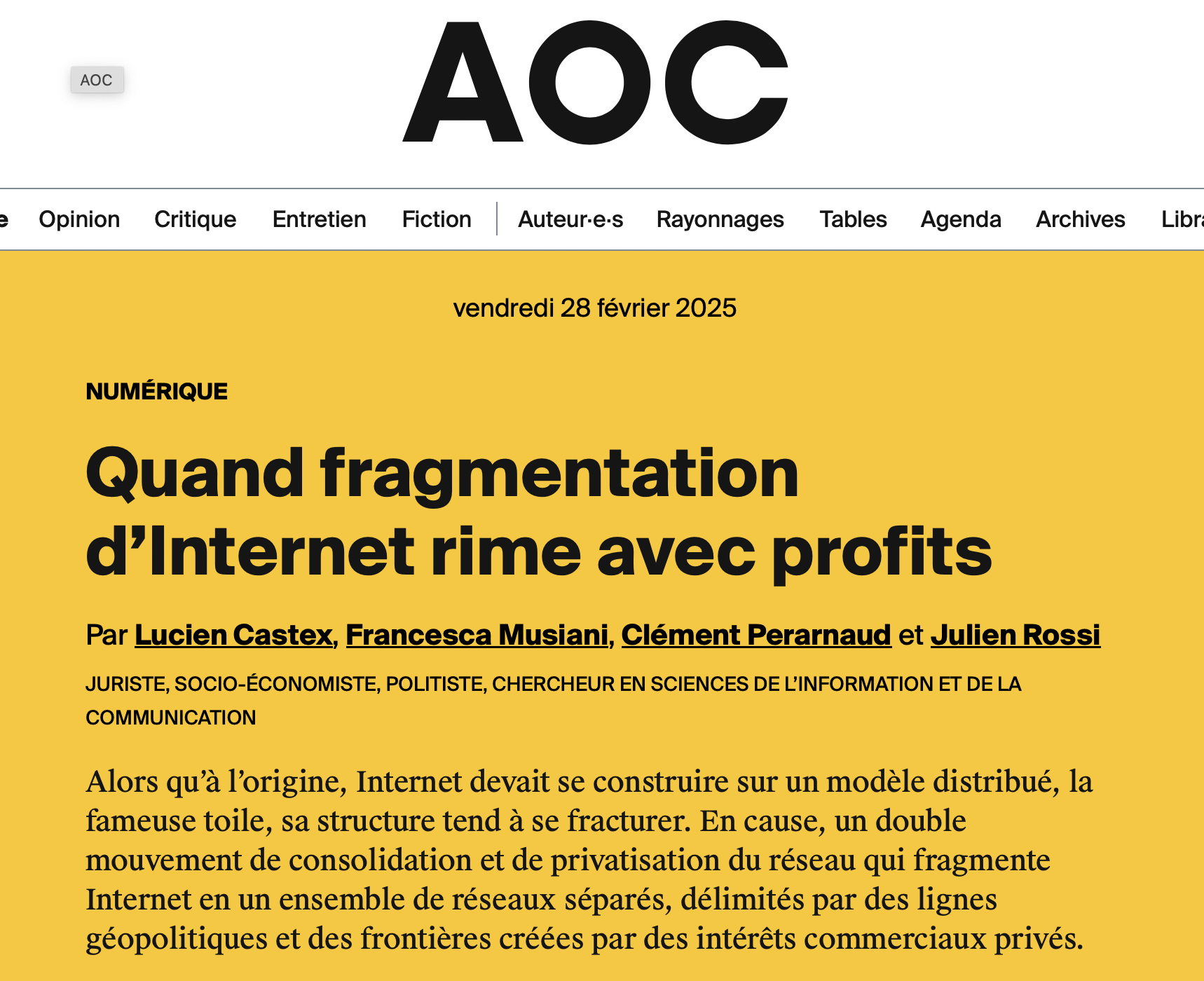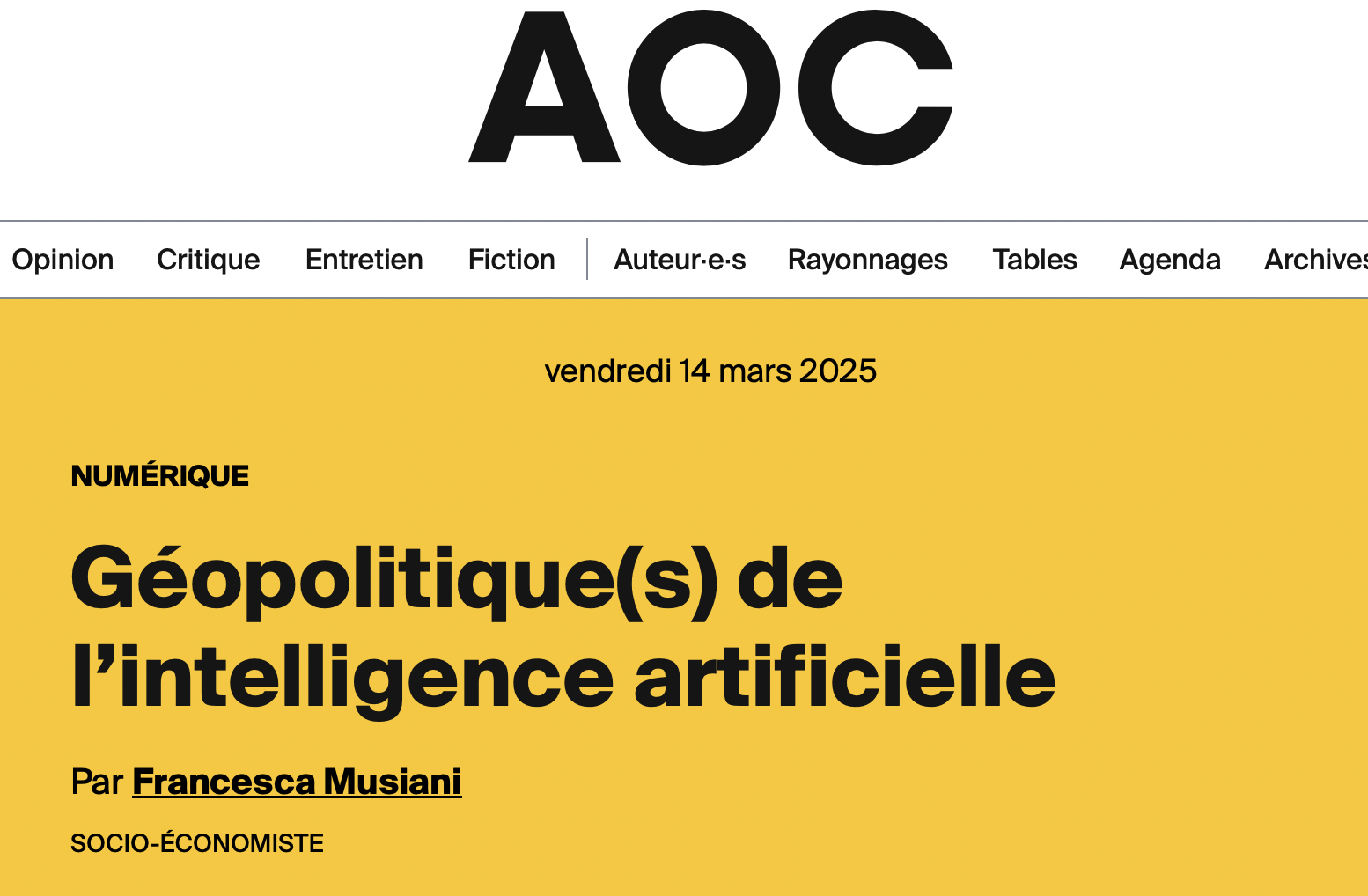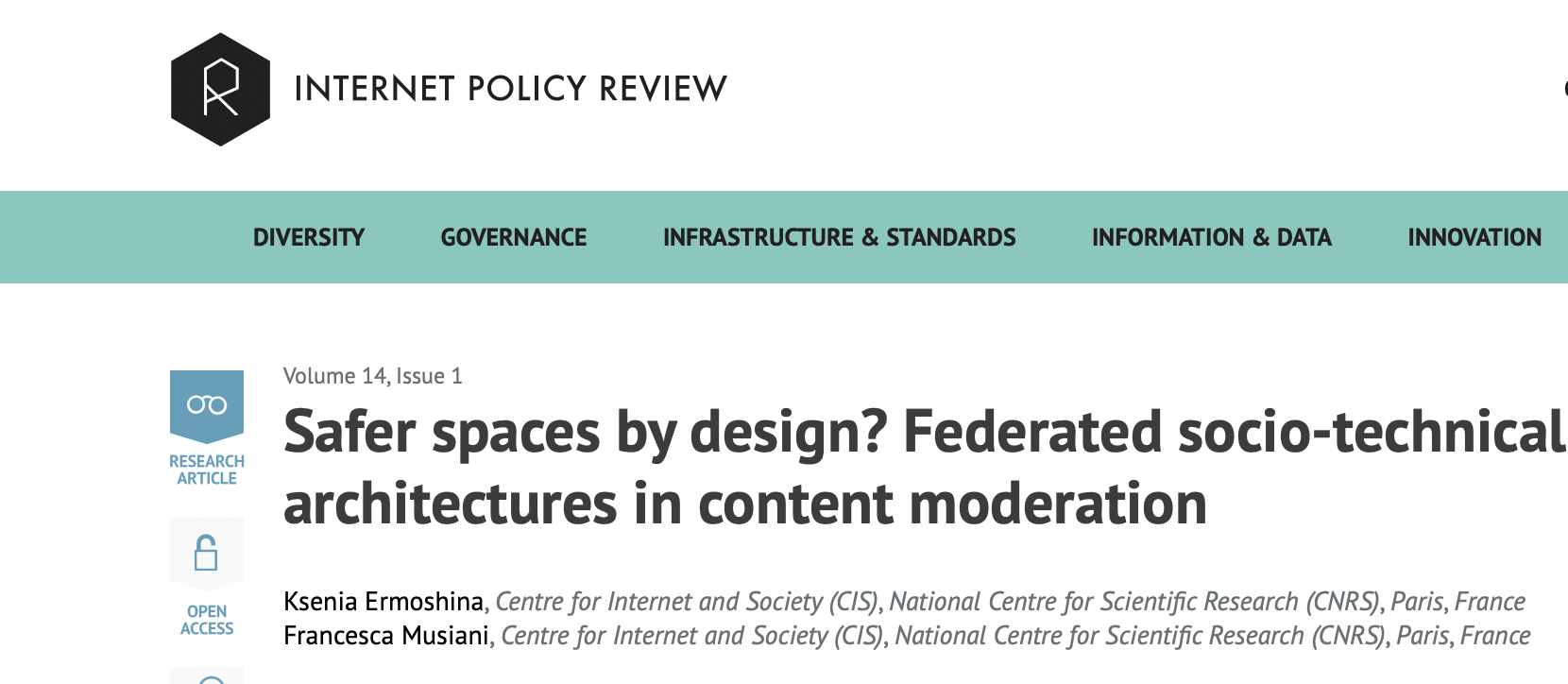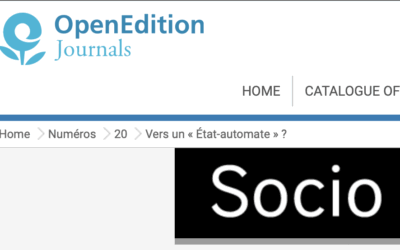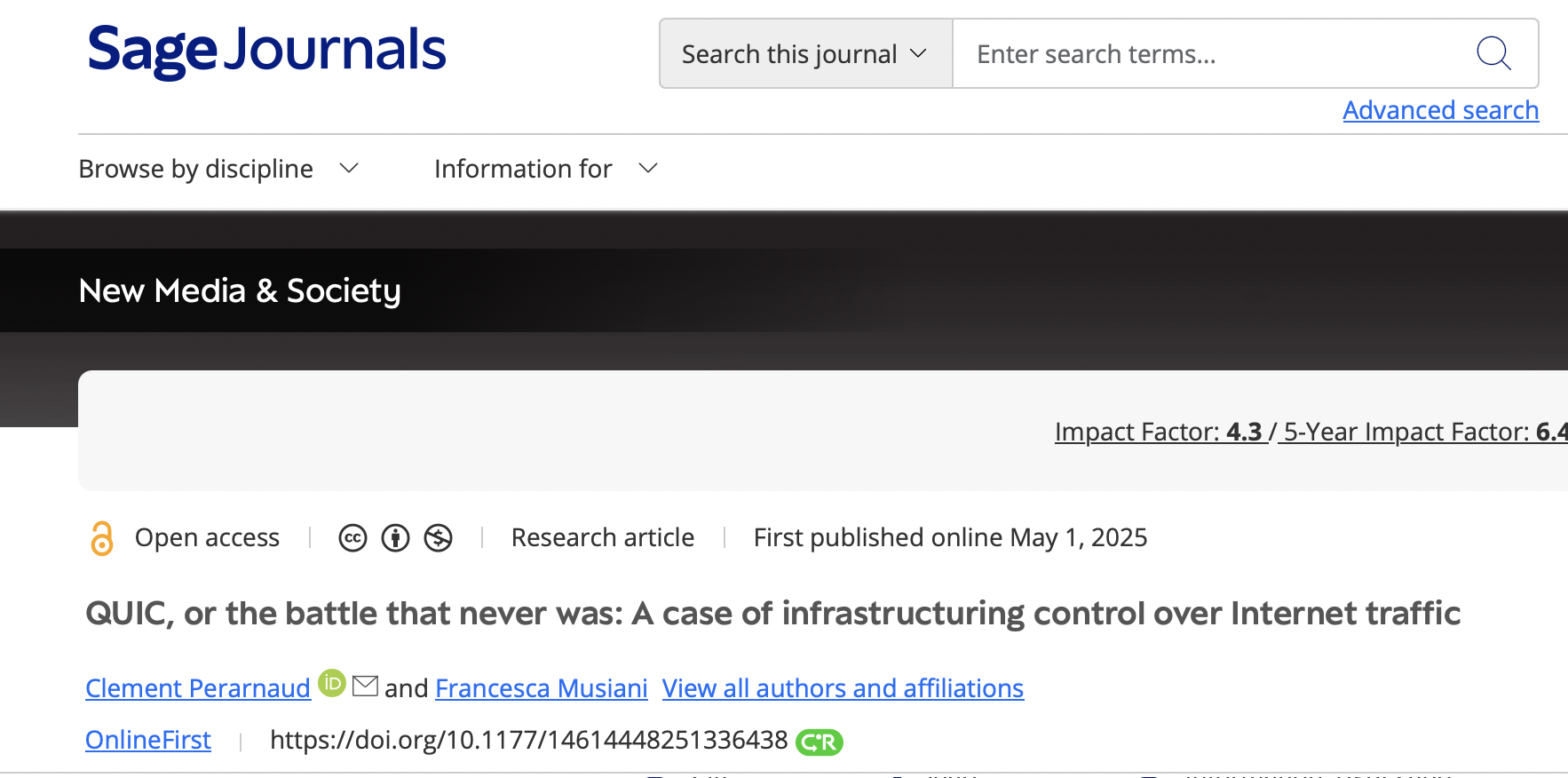Publications
Book | Digital Authoritarianism in the Making
Françoise Daucé, Benjamin Loveluck & Francesca Musiani (eds.), Digital Authoritarianism in the Making. Repression and Resistance on the Russian Internet, The MIT Press, 2025 Available in open access. This is the revised and updated translation of the book Genèse...
Article | Governing the ‘Governors’ of online speech: a review of the Digital Services Act’s first steps in regulating social media platforms
Anastasia Iliopoulou-Penot, “Governing the 'Governors' of online speech: a review of the Digital Services Act's first steps in regulating social media platforms”, Yearbook of European Law, 2025 The Digital Services Act (DSA) introduces a comprehensive set of rules...
Article | Souveraineté numérique et concurrence des régimes politiques : origines et perspectives
Publication as part of the special issue « Constitutionnalisme numérique et approches critiques en droit et technologie » in the Revue des droits et libertés fondamentaux, edited by Manon Altwegg-Boussac and Afroditi Marketou. Benjamin Loveluck, « Souveraineté...
Article | China’s strategic approach to tech diplomacy in a time of global uncertainty
Zhao Alexandre Huang and Xiang Meng, “China’s strategic approach to tech diplomacy in a time of global uncertainty”, Global Policy, online first, 2025 In the wake of U.S.-China technological competition and the COVID-19 pandemic, “tech diplomacy” has gained prominence...
Article | Quand fragmentation d’Internet rime avec profits
Alors qu’à l’origine, Internet devait se construire sur un modèle distribué, la fameuse toile, sa structure tend à se fracturer. En cause, un double mouvement de consolidation et de privatisation du réseau qui fragmente Internet en un ensemble de réseaux séparés,...
Article | Géopolitique(s) de l’intelligence artificielle
Une nouvelle intelligence générative a fait irruption dans les mondes numériques : DeepSeek. Cette arrivée confirme qu’une nouvelle course à l’innovation, des années après la conquête spatiale, oppose les principaux acteurs des technologies de l’information et de la...
Article | Safer spaces by design? Federated socio-technical architectures in content moderation
Users of secure messaging tools, especially in communities attuned to the risks of state-based and other forms of censorship, increasingly hesitate to delegate their data to centralised platforms, endowed with substantial power to filter content and block user...
Article | Towards a “State-automaton”? Artificial intelligence, transformations of work and public action
The article addresses the introduction and operation of devices supported by artificial intelligence (AI), in public action. In recent years, States and governments—including France—have increasingly used this type of instrument in a wide variety of areas. The use of...
Article | QUIC, or the battle that never was: A case of infrastructuring control over Internet traffic
This article investigates the development and deployment process of QUIC, a new standard of the Internet Engineering Task Force (IETF) that is fostering momentous architectural change in the ways in which communication and data packets transport happens on the...
Article | Réseaux sociaux et risques systémiques : les premiers pas dans la mise en œuvre du Digital Services Act
Anastasia Iliopoulou-Penot, professor at Paris-Panthéon-Assas University and member of the DIGISOV project, published a contribution in La Semaine Juridique on 7 April 2025: « Réseaux sociaux et risques systémiques : les premiers pas dans la mise en œuvre du Digital...
Chapter | Circumventing the “sovereignization” of the Russian Internet
Françoise Daucé, Ksenia Ermoshina, Benjamin Loveluck and Francesca Musiani co-authored a chapter entitled “Circumventing the 'sovereignization' of the Russian internet” in the collective volume edited by Min Jiang and Luca Belli, Digital Sovereignty in the BRICS...
Chapter | China’s public diplomacy: a historical analysis of its institutions and conceptual pathways
Zhao Alexandre Huang, member of the DIGISOV project, published a chapter entitled “China's public diplomacy: a historical analysis of its institutions and conceptual pathways” in the collective volume edited by Sean Aday, Handbook on Public Diplomacy, Edward Elgar...

